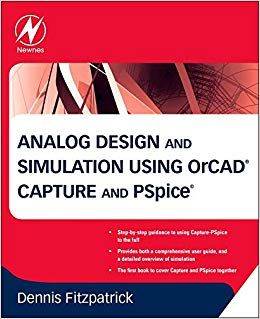
Download Analog Design and Simulation using OrCAD Capture and PSpice PDF EPUB
Author: Author
Pages: 344
Size: 1.885,59 Kb
Publication Date: November 30,2011
Category: Integrated
Analog Style and Simulation using OrCAD Catch and PSpice provides step-by-step guidelines on how to make use of the Cadence/OrCAD category of Electronic Style Automation software program for analog style and simulation. Organized into 22 chapters, each with exercises by the end, it clarifies how to begin Capture and setup the task type and libraries for PSpice simulation.
The reserve describes a parametric sweep, that involves sweeping a parameter through a variety of values, together with the usage of Stimulus Editor to define transient analog and digital resources. It also covers the usage of AC evaluation to calculate the rate of recurrence and stage response of a circuit and DC evaluation to compute the circuits bias stage over a variety of ideals.
- Provides both a thorough user guide, and an in depth summary of simulation
- Each chapter spent some time working and prepared to try sample styles and provides an array of to-perform exercises
- Core abilities are developed utilizing a running research study circuit
- Covers Catch and PSpice jointly for the very first time
Practitioners, experts, and those thinking about using the Cadence/OrCAD professional simulation software program to create and analyze digital circuits will find the info, methods, substances, and experiments referred to in this publication extremely useful. In addition, it examines the failing of simulations because of circuit errors and lacking or incorrect parameters, and discusses the usage of Monte Carlo evaluation to estimate the response of a circuit when gadget model parameters are randomly varied between specified tolerance limitations relating to a specified statistical distribution.